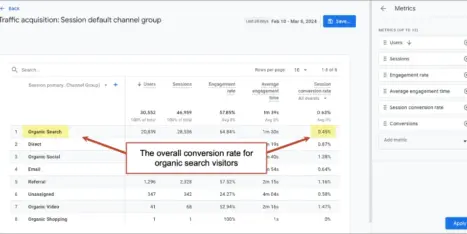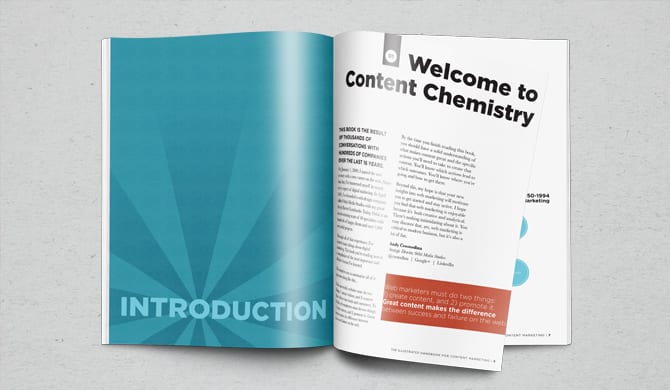How can I rank high? How can I get more traffic from Google? Why don’t I rank for this phrase?
Hundreds of people have asked me these questions. But they often lose patience as I begin to answer. They’re hoping for a simple response. A quick fix. Some secret trick to ranking high.
When I get to the part about writing, eyes glaze.
There are really just two steps to creating a search-optimized article:
- Step 1: Pick a keyphrase that meets two criteria: Your audience searches for it, and you have a chance of ranking for it.
- Step 2: Make the best page on the internet for the topic.
It’s that second step that people find difficult.
But writing affects rankings. Quality is the ultimate factor that determines which page ranks high. It’s not a mystery. But a lot of people don’t understand the specific connections. There are at least four.
Let’s connect the dots between great writing and high rankings.
1. Great writing is detailed and complete
And Google loves detailed articles. Here’s how the dots connect from great writing to high rankings when great writing means highly detailed articles.
- Great writing is…
- Detailed, thorough and complete. So it tends to be…
- Longer and more likely to include great answers to the visitors’ questions, so it tends to…
- Attract more links, which means it tends to…
- Rank higher in search results
Here’s the data showing the correlation between length and links (and shares) based on a dataset pulled by Steve Rayson of Buzzsumo.
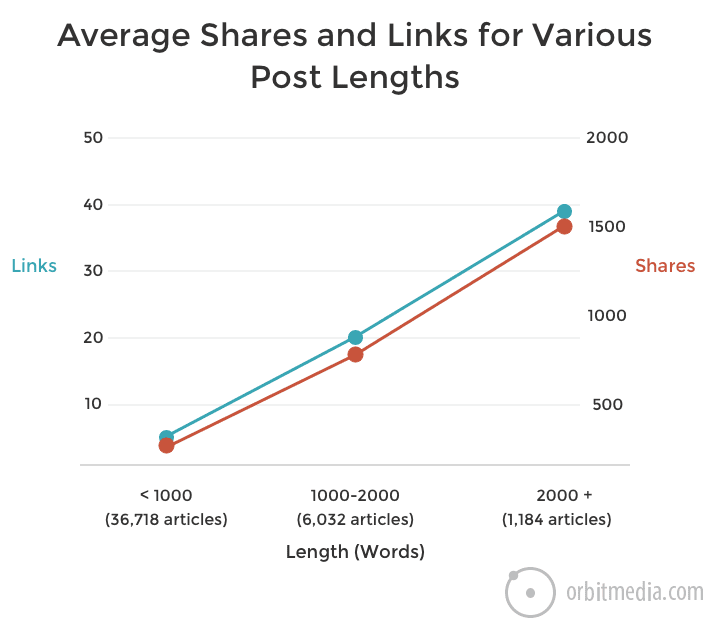
Steve has done more research on content marketing data than anyone you’ll ever meet. He’s an expert at finding correlations within statistical data and connecting content types with results. He’s an advocate for detailed content that answers questions.
 |
“Select your question carefully. Find questions where there is an opportunity for you to be the best answer, and then create the most authoritative and comprehensive answer you can. This typically means long-form content. The data shows that on average long-form content performs better.” – Steve Rayson, Director, Buzzsumo |
According to another study, the average high-ranking page is 1,500-2,000 words long.
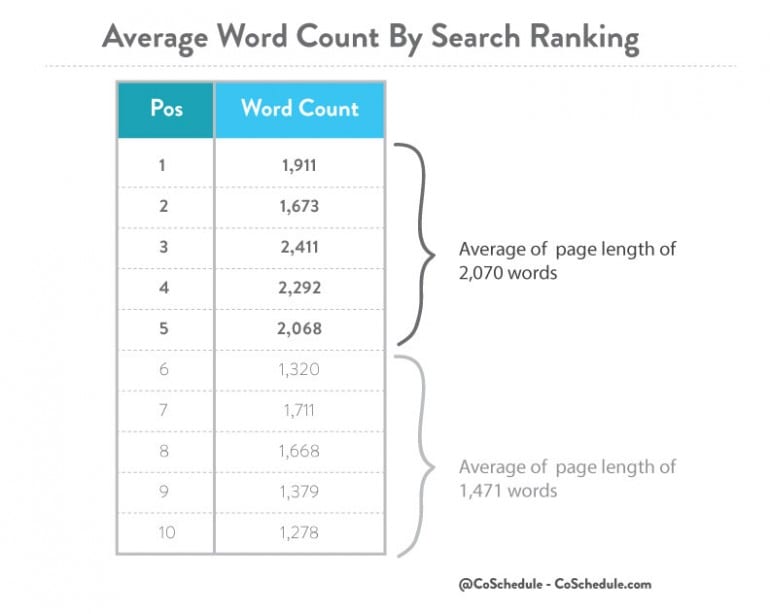
source: CoSchedule
Action: How to write more detailed, complete articles
Use research tools to find all of the questions that are related to your topic. We recommend Answer the Public, Quora and Bloomberry. Just drop your topic into any of these tools and you’ll find a list of questions that you can answer in your article.
Related: Semantic SEO: How to Future-Proof Your Search Rankings
2. Great writing gets shared more
And sharing correlates with rankings. But a lot of marketers don’t understand the real connection. Here’s how the dots connect when great writing means more share-worthy articles.
- Great writing is…
- More likely to be shared, making it more likely to be…
- Seen by bloggers, editors and other content creators, who may create…
- Links to the article from other websites, which causes the article to…
- Rank higher is search results
Here’s the data: Yes, there is a correlation between social sharing and rankings. Although few SEOs believe in a causal relationship, the increased visibility to content creators is undeniable.
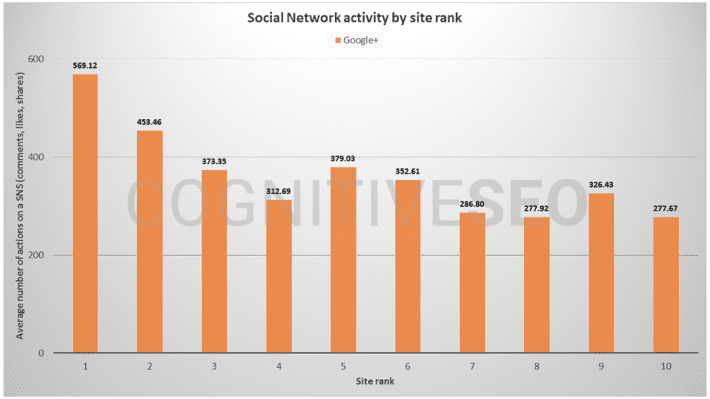
source: Cognitive SEO
Next, here is the causal relationship. Sharing makes the content more likely to be seen, loved and linked to by other content creators. That’s the only real reason that sharing leads to rankings. That’s how social media affects SEO.
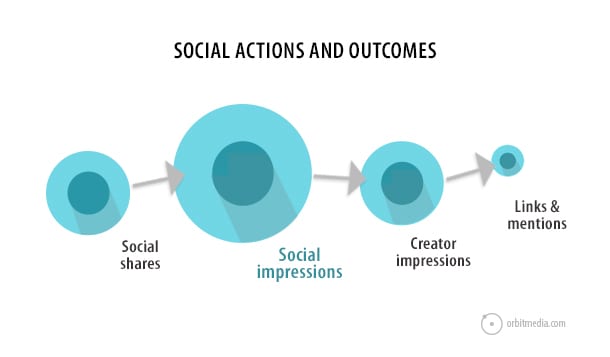
Action: How to increase sharing of your content
There is one, surefire way to make your content visible to people who will want to share it: include them in the article. Adding a contributor quote from someone with a nice, active social following is a great way to optimize for social …and therefore optimize for search.
Related: 5 Ways to Collaborate in Content Marketing
3. Great writing gets clicked more in search results
A smart, compelling headline will win more clicks than a boring headline. Everyone knows that. But not everyone gets the connection between those clicks and high rankings. Here’s how the dots connect between great headlines and high rankings.
- Great writing has…
- Compelling headlines. When that headline is the title tag…
- The title appears as the link in search results. When that title gets clicked, it sends…
- Strong user interaction signals to Google, so next time it will…
- Rank higher in search results
Probably, Larry Kim has spent more time researching this than anyone. And he’s found strong connections between clickthrough rates and rankings, despite the fact that Google denies using this as a ranking factor.
 |
“On average, beating the expected CTR for a given organic position by 3% yielded a 1-spot increase in organic rankings. They also play a role in featured snippet selection. ” – Larry Kim, Founder of Wordstream and CEO of Mobile Monkey |
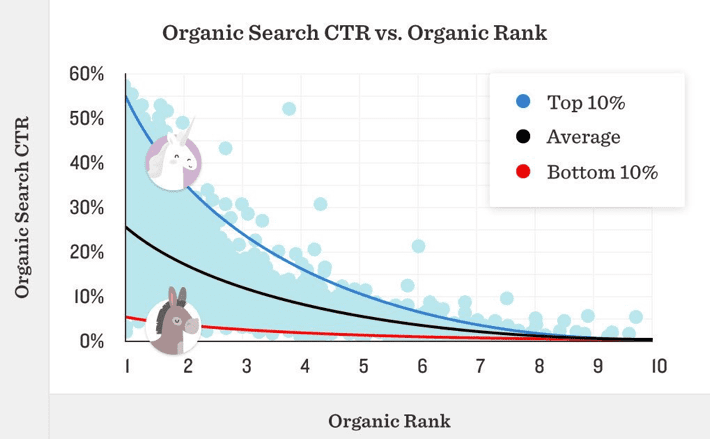
Action: How to increase your clickthrough rate
They’re scanning through the search results. Can catch their attention by using unexpected words, especially those proven, secret, premium words. Use words that are premium, instant, and huge.
Numbers can also help you stand out. Now they’re doing a quick cost/benefit calculation in their head. Is it worth the click? Indicate the benefits. Be useful and specific.
Related: How to Write a Headline that Won’t Get Ignored: The 7-Point Checklist
4. Great writing gets longer visits
Just like the clickthrough rate, time on page is a user interaction signal. When a visitor comes from search, the time on page is called dwell time. Here’s how it works:
A visitor sees you on a search results page. They click. Do they spend a short time on the page? Google concludes the quality was low. Or a long time on page? Google thinks you’ve got a great page.
Dwell time is the difference between the long click and the short click (aka, pogo-sticking). And it has everything to do with quality and rankings.
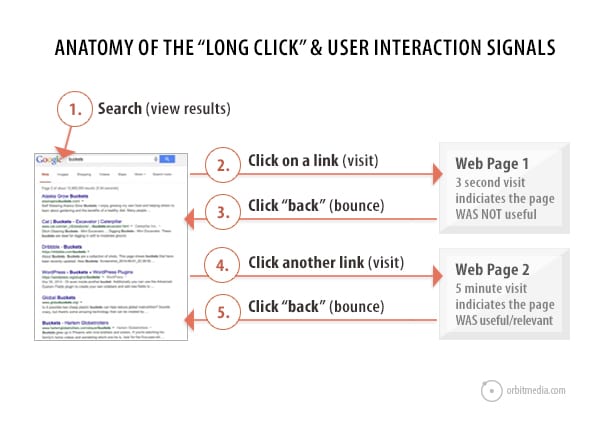
Here’s how the dots connect when great writing means longer visits:
- Great writing is…
- Engaging for visitors, which is…
- More likely to keep visitors for longer, sending a…
- Strong user interaction signal to Google, so next time it will…
- Rank higher in search results
Action: Increase the time visitors spend on your pages
Slow down the scanners and keep them flowing down the page. Use elements with stopping power, like images and video. Most of all, never let you readers hit a wall of text. Long paragraphs are deadly for dwell time. Use short paragraphs, subheads, multiple images, bullets, bolding and internal links.
Related: Web Content Checklist: 21 Ways to Publish Better Content
Bottom Line: Make the best page on the internet for your topic
It’s the best tip, but it’s the hardest to follow. Google is really just a top 10 list for any topic you can imagine. So ask yourself, did you make one of the top 10 pages on your topic?
Now you know specifically how great writing leads to great rankings. It’s not a mystery.
Google famously has 2000+ Mathematics PhDs on staff. I assume they are smarter than I am. I want them on my team, so here’s how I think about SEO:
- If you made the best page on the internet for your topic
…there are 2000 Math PhD’s trying to HELP you - If you didn’t make the best page on the internet for your topic
…there are 2000 Math PhD’s trying to STOP you
Write something great and the search engines are on your side.


